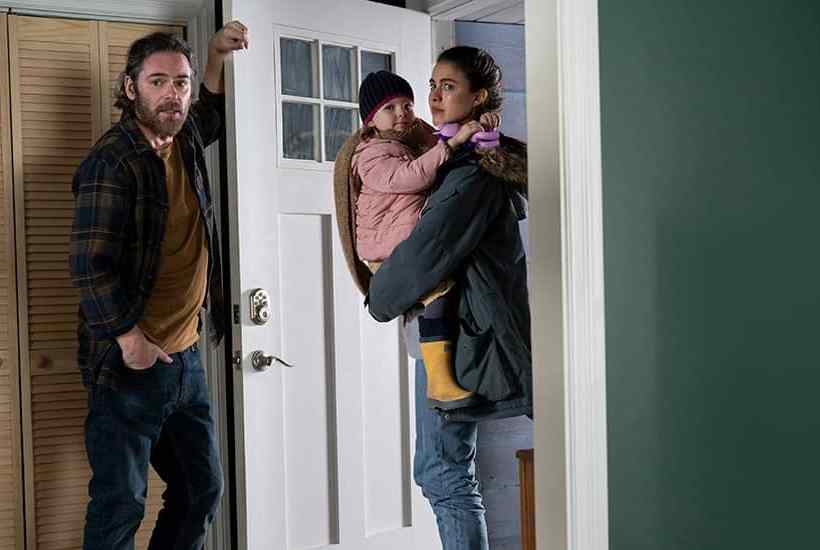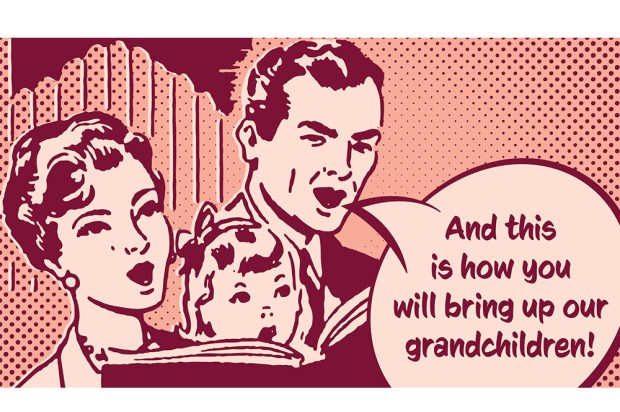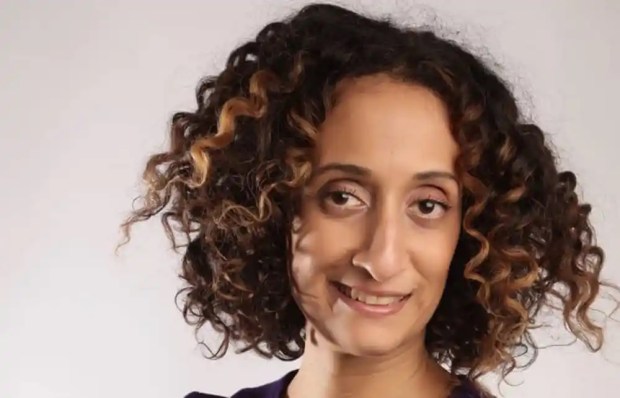I have Netflix, and in particular the series Maid, to thank for the startling discovery of how easy it is to slide into a form of man-hating — not a righteous feminist rage, but a sort of dopey, palliative, unthinking misandry.
Maid was released last month, and it’s already one of the stand-out Netflix successes of 2021. (It was announced last week that it’s set to take over Queen’s Gambit as the most-watched Netflix miniseries.) The show is catnip for women, and after several late nights, letting one episode tip into another, I can see why. It’s based on the real-life memoir of a woman in the US who fled an abusive boyfriend and supported herself and her small daughter by working as a cleaner. It stars Andie MacDowell’s daughter Margaret Qualley, with Andie herself as the destructive, bipolar (but still hot) mum.
Maid is well-written and well-acted, but the secret of its success lies somewhere quite different. The distinctive thing about it is that every male character is an absolute horror. I mean: every single one. There’s the abusive babyfather who swings between violence and remorse; the maid’s own father, another wife-beater; and a slew of shifty, venal stepdads. The bit-part men are shockers too: uncaring landlords, supercilious doctors. Even the men we never meet but merely hear discussed are abusive. The only male initially appearing decent is a chap called Nate who saves our heroine from homelessness. But then he boots her out again because she won’t sleep with him. (‘Classic toxic knight-saviour,’ according to social media.)
Maid is ‘hard to watch but it’s important,’ said the reviews. Well, that’s straight untrue. Maid is frighteningly easy to watch, which is why it’s so popular, but also why it’s pernicious. This is misandry shot and presented as an empowering chick-flick. Settle in, make popcorn, enjoy the intoxicating feeling of sticking it to men, all men.
And I’m afraid I did. After watching the show, I drank the Kool-Aid, just a little, and it tasted good. I asked my husband how it felt to be part of the oppressor class. I accused him of mansplaining — and as the word came out of my mouth, it felt round and satisfying. I looked back at any odd, unasked-for lunge in my past and saw it suddenly as part of a continuum of male sin that ends in wife-beating. I quite forgot that men ever suffer at the hands of women, and that women can be as vicious as a sack of rats.
My power trip lasted for 24 hours. At breakfast the following day, it occurred to me that I wasn’t remotely oppressed and I also began to see why Maid had had the effect that it did. Netflix is offering an analgesic. If you persuade women that all men are bad, then all women instantly become victims. And if you’re a victim, all the free-floating guilt — about privilege, about the planet, about parenting — simply disappears.
I suspect it’s everywhere now, this almost invisible bigotry, streamed into our psyches via Netflix and Amazon Prime — what the French philosopher Élisabeth Badinter calls ‘the binary thinking of belligerent neofeminism’. There was the 2019 Charlie’s Angels for instance; and that DC spin-off, Birds of Prey: two hours without a single redeeming man. And how could it be otherwise? Think of all the forces at work, tugging at the minds of scriptwriters, producers and shareholders. There’s so much dosh to be made selling bogus solidarity to women sitting alone on sofas. Then there are the ‘sensitivity readers’. Someone should make a horror film called The Sensitivity Readers.
Am I wrong to worry? My female friends think so. When I complain to them about Maid, they say that it’s a true story and that domestic abuse is a serious issue which should be better understood. That’s beside the point, say I. The series is like a Cadbury selection box of male sin — no vice is left unrepresented.
Can you for a nanosecond imagine anyone today making a miniseries about the iniquities of women, starring a blameless man? Go on, try. We’ll call it Barista and here’s the elevator pitch: an attractive young man with a drunk, coercive girlfriend runs away from her one night with his baby boy. His mother won’t help him because she’s a drunk too. He survives by working in coffee shops but loses custody because the man-hating female judge is set against him. All the women he dates are manipulative and avaricious, but in the end he finds fulfilment in an all-male self-help group for the victims of female psychos. What do you think? Will it sell?
Oddly, most people I’ve spoken to needed no persuading that men were being given short shrift on screen but the consensus was that this wasn’t unfair, it was simply payback. For at least a century, women have been misrepresented on screen, they said. Male directors have made films by male writers presenting women as men want to see them. It’s time to redress the balance. What a strange way to think. Should we burn men because men once burnt witches? Take their votes away, and perhaps their children? And what about our teens, quietly absorbing this skewed reality and taking it for fact?
In the 1980s, the American cartoonist Alison Bechdel proposed a test for measuring the representation of women in fiction. A book or film would only pass, she said, if it featured at least two women who talk to each other about something other than a man. Bechdel was joking at the time, but this became known as ‘the Bechdel test’ and is now widely used.
I think, come 2022, we’re going to need another version of the Bechdel test, but this time in defence of men. If any film or series contains not one single male character who isn’t either useless or evil, it fails. For want of a better idea we could call it the Maid test.
Got something to add? Join the discussion and comment below.
Get 10 issues for just $10
Subscribe to The Spectator Australia today for the next 10 magazine issues, plus full online access, for just $10.
You might disagree with half of it, but you’ll enjoy reading all of it. Try your first month for free, then just $2 a week for the remainder of your first year.















Comments
Don't miss out
Join the conversation with other Spectator Australia readers. Subscribe to leave a comment.
SUBSCRIBEAlready a subscriber? Log in